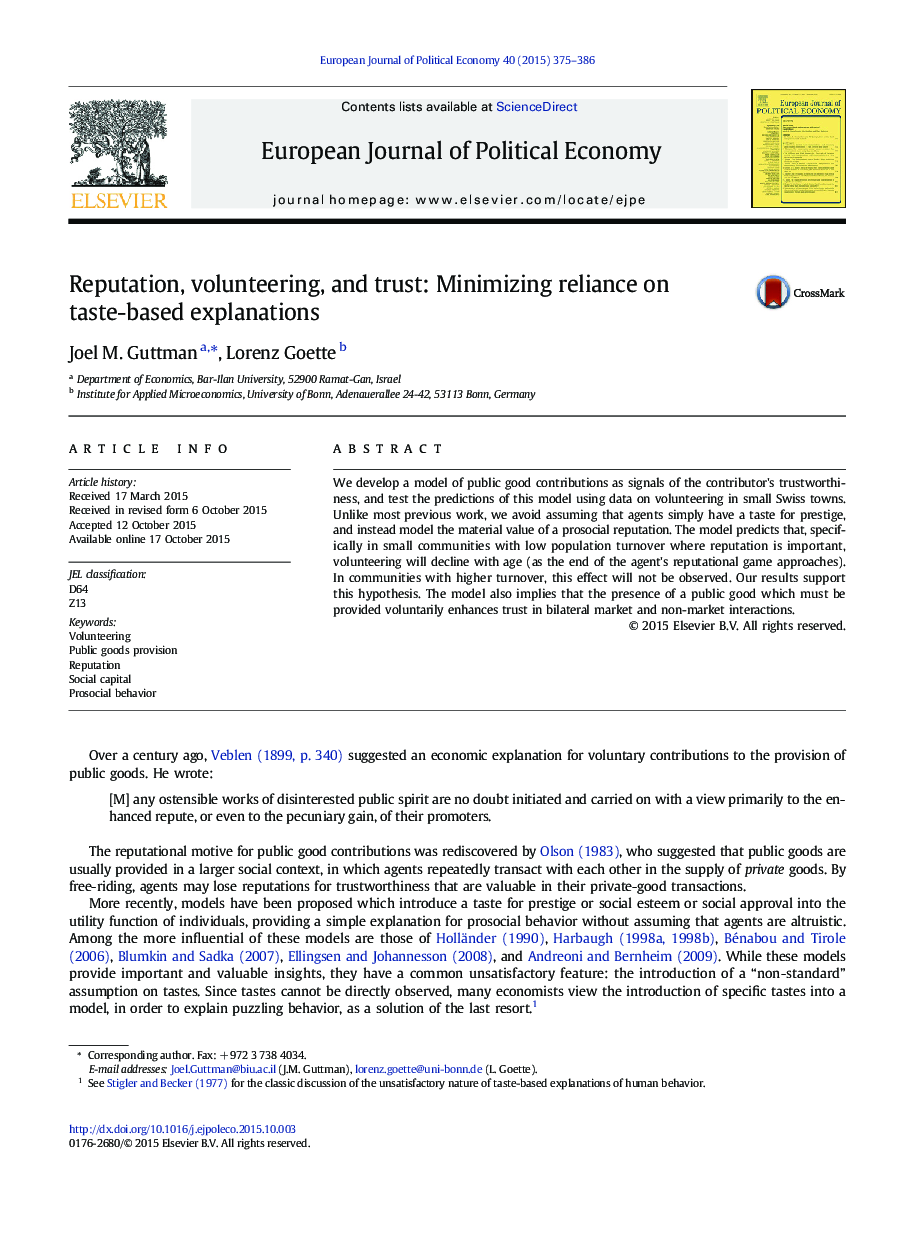| Article ID | Journal | Published Year | Pages | File Type |
|---|---|---|---|---|
| 5067900 | European Journal of Political Economy | 2015 | 12 Pages |
â¢We model public good contributions as signals of trustworthiness.â¢Motive for contributions is the payoff of being trusted in a bilateral trust game.â¢Conversely, the opportunity of voluntary provision of public goods enhances trust.â¢Model predicts drop in volunteering with age where reputation is important.â¢We find support for this hypothesis, using volunteering data in small Swiss towns.
We develop a model of public good contributions as signals of the contributor's trustworthiness, and test the predictions of this model using data on volunteering in small Swiss towns. Unlike most previous work, we avoid assuming that agents simply have a taste for prestige, and instead model the material value of a prosocial reputation. The model predicts that, specifically in small communities with low population turnover where reputation is important, volunteering will decline with age (as the end of the agent's reputational game approaches). In communities with higher turnover, this effect will not be observed. Our results support this hypothesis. The model also implies that the presence of a public good which must be provided voluntarily enhances trust in bilateral market and non-market interactions.
